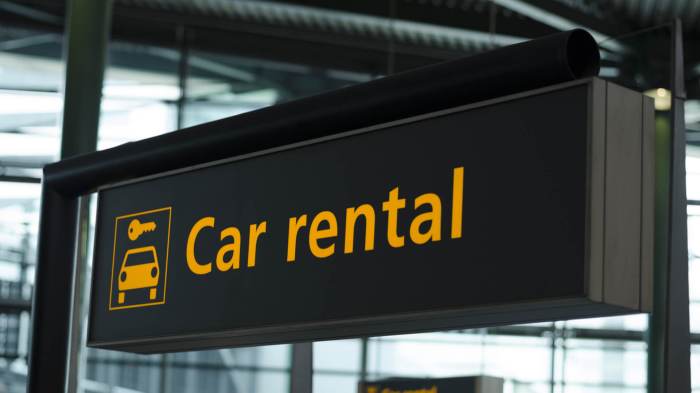Houses for Rent Agencies Your Guide
Finding Reputable Rental Agencies
Houses for rent agencies – Choosing the right rental agency can significantly impact your rental experience. A reputable agency offers transparency, protects your rights, and facilitates a smooth process. Conversely, working with an unreliable agency can lead to scams, disputes, and unnecessary stress. Careful consideration of several factors is crucial before engaging an agency’s services.
Factors to Consider When Choosing a Rental Agency

Source: searchengineland.com
Several key factors should be evaluated to determine an agency’s trustworthiness and professionalism. These factors help mitigate potential risks and ensure a positive rental experience.
| Licensing and Accreditation | Reviews and Reputation | Years of Operation | Transparency and Communication |
|---|---|---|---|
| Verify the agency’s license with the relevant regulatory bodies. A valid license demonstrates compliance with industry standards and legal requirements. Look for evidence of professional affiliations or accreditations. | Check online reviews on platforms like Google, Yelp, and social media. Pay attention to both positive and negative feedback, looking for recurring themes or patterns. Consider the volume and recency of reviews. | Longer-established agencies generally have a more proven track record. However, this doesn’t guarantee reliability; newer agencies can also be reputable. Consider this factor in conjunction with other criteria. | Assess the agency’s responsiveness to inquiries, clarity in communication, and willingness to answer questions thoroughly. Open communication is vital for a smooth rental process. |
Red Flags Indicating an Unreliable Agency
Certain warning signs can indicate a potentially problematic rental agency. Recognizing these red flags is crucial to avoiding scams and ensuring a safe rental experience.
- High-pressure sales tactics or unrealistic promises.
- Requests for upfront payments before viewing properties or signing a lease.
- Lack of a physical office or verifiable contact information.
- Unprofessional or unresponsive staff.
- Inconsistencies or discrepancies in information provided.
- Negative reviews mentioning scams or unethical practices.
Verifying an Agency’s Legitimacy
Thorough verification safeguards against potential issues. It involves multiple steps to confirm the agency’s operational legitimacy and adherence to legal and ethical standards.
- Check for a valid business license and registration with relevant authorities.
- Verify the agency’s physical address and contact details.
- Search online for reviews and testimonials from previous clients.
- Contact the agency directly to ask questions and assess their responsiveness.
- Consider consulting with a real estate professional or legal advisor for additional verification.
Understanding Agency Fees and Contracts: Houses For Rent Agencies
Rental agencies typically charge various fees. Understanding these fees and the terms of your lease agreement is crucial to avoid unexpected costs and disputes.
Typical Agency Fees
Several fees are commonly associated with using a rental agency. These fees can vary based on location and the specific services provided by the agency.
- Application Fee: Covers the cost of processing your rental application, including background and credit checks.
- Lease Administration Fee: Covers the agency’s administrative costs associated with preparing and managing the lease agreement.
- Tenant Placement Fee: Paid by the tenant upon securing a rental property; this fee often covers the agency’s marketing and administrative costs.
- Other potential fees: Some agencies may charge additional fees for services such as lease renewals or early lease termination.
Sample Lease Agreement Clauses
A standard lease agreement Artikels the rights and responsibilities of both the landlord and the tenant. Key clauses should be carefully reviewed and understood before signing.
- Rent Amount and Payment Schedule: Clearly states the monthly rent amount and the due date.
- Lease Term: Specifies the duration of the lease agreement.
- Security Deposit: Artikels the amount of the security deposit and the conditions for its return.
- Late Fee Policy: Details the penalties for late rent payments.
- Pet Policy: If applicable, specifies the rules and regulations regarding pets.
- Maintenance and Repairs: Clarifies the responsibilities of the landlord and tenant regarding property maintenance.
- Termination Clause: Specifies the conditions under which the lease can be terminated by either party.
Types of Lease Agreements
Different types of lease agreements offer varying terms and conditions. Understanding these differences is crucial in choosing the most suitable option.
- Fixed-Term Lease: A lease with a specific start and end date.
- Month-to-Month Lease: A lease that automatically renews each month unless terminated by either party with proper notice.
- Sublease Agreement: Allows a tenant to rent out all or part of their leased property to another tenant.
The Rental Application Process
The rental application process involves several steps, from submitting the application to undergoing background checks. Understanding this process can increase your chances of successful application.
Step-by-Step Rental Application Guide, Houses for rent agencies

Source: investopedia.com
A well-organized approach to completing a rental application can significantly improve the chances of approval.
- Find Suitable Properties: Identify properties that meet your needs and budget.
- Gather Required Documents: Collect necessary documents, such as identification, proof of income, and rental history.
- Complete the Application Form: Fill out the application form accurately and completely.
- Submit the Application: Submit the completed application form and supporting documents to the agency.
- Undergo Background and Credit Checks: Allow the agency to conduct necessary background and credit checks.
- Property Viewing: View the property to ensure it meets your expectations.
- Lease Signing: Sign the lease agreement once you’re satisfied with the terms.
Credit and Background Checks
Agencies conduct credit and background checks to assess the applicant’s reliability and suitability as a tenant. This process involves verifying information provided in the application.
- Credit Check: Reviews the applicant’s credit history to assess their creditworthiness.
- Background Check: Verifies the applicant’s identity and checks for any criminal records or evictions.
- Rental History Check: Verifies the applicant’s past rental history, including payment records and any complaints from previous landlords.
Reasons for Application Rejection
Several factors can lead to application rejection. Understanding these factors can help applicants improve their chances in future applications.
- Poor Credit Score: A low credit score can indicate financial instability.
- Negative Rental History: Previous evictions or late rent payments can raise concerns.
- Insufficient Income: Inability to demonstrate sufficient income to cover rent.
- Incomplete Application: Missing information or incomplete application forms.
- Criminal Record: A criminal history can be a cause for rejection, depending on the severity and nature of the offenses.
Tenant Rights and Responsibilities
Understanding tenant rights and responsibilities is crucial for a positive rental experience. This knowledge ensures a fair and harmonious relationship between tenant and landlord/agency.
Key Tenant Rights
- Right to a habitable dwelling: The property must meet basic health and safety standards.
- Right to privacy: Landlords generally cannot enter the property without reasonable notice.
- Right to timely repairs: Landlords are typically responsible for making necessary repairs.
- Right to quiet enjoyment: Tenants have the right to peaceful and undisturbed possession of their rental unit.
- Right to withhold rent (under specific circumstances): In some cases, tenants may be legally entitled to withhold rent if the landlord fails to make necessary repairs.
Common Tenant Responsibilities
- Paying rent on time: Prompt rent payment is a fundamental tenant responsibility.
- Maintaining the property: Keeping the property clean and in good condition, avoiding damage.
- Adhering to lease terms: Following all rules and regulations Artikeld in the lease agreement.
- Notifying the landlord of necessary repairs: Reporting any needed repairs promptly to the landlord or agency.
- Respecting other tenants: Maintaining a peaceful and respectful environment for all residents.
Finding Available Properties
Rental agencies utilize various methods to advertise available properties. Understanding these methods helps tenants find suitable options efficiently.
Methods of Advertising Rental Properties
Agencies employ diverse advertising strategies to reach potential tenants. These strategies ensure wide exposure for available properties.
- Online Listings: Websites specializing in rental listings, such as Zillow, Trulia, and Apartments.com.
- Agency Websites: Many agencies maintain their own websites showcasing available properties.
- Social Media Marketing: Agencies often utilize social media platforms to advertise properties.
- Print Advertising: While less common now, some agencies still use print media, such as newspapers and magazines.
- Networking and Referrals: Agencies may utilize word-of-mouth referrals and networking to attract tenants.
Effective Property Descriptions
Clear and concise property descriptions are essential for attracting potential tenants. These descriptions should highlight key features and attract interest.
- Accurate and detailed information: Include square footage, number of bedrooms and bathrooms, key features (e.g., appliances, parking), and neighborhood details.
- High-quality photos and videos: Visuals are crucial for showcasing the property’s appeal.
- Compelling language: Use descriptive language to highlight the property’s positive attributes.
- Pricing and availability: Clearly state the rent amount and availability date.
- Contact information: Provide easy access to contact information for inquiries.
Importance of In-Person Property Viewings
Viewing properties in person before signing a lease is essential. This allows tenants to assess the property’s condition and suitability firsthand.
- Assess the property’s condition: Check for any damage, repairs needed, or inconsistencies with the description.
- Evaluate the neighborhood: Consider factors such as noise levels, proximity to amenities, and safety.
- Confirm the property’s features: Verify that the property includes all the features listed in the description.
- Ask questions: Use the viewing as an opportunity to ask any remaining questions to the agency or landlord.
Dealing with Issues During a Tenancy
Effective communication and documentation are vital when addressing issues during a tenancy. This ensures that problems are resolved promptly and efficiently.
Communicating with the Rental Agency
Maintaining open communication with the agency is crucial for addressing maintenance requests and other concerns.
- Use appropriate communication channels: Utilize email or phone calls, depending on the agency’s preferred methods. Maintain a record of all communications.
- Be clear and concise: Clearly explain the issue, providing all relevant details.
- Follow up: If you don’t receive a response within a reasonable timeframe, follow up with the agency.
- Maintain a professional tone: Even when frustrated, maintain a respectful and professional demeanor.
Resolving Disputes with the Agency
Disputes may arise during a tenancy. Having a clear understanding of the dispute resolution process is important.
- Attempt to resolve the issue informally: Try to communicate and reach an agreement with the agency directly.
- Consider mediation: If informal attempts fail, consider seeking mediation from a neutral third party.
- Consult with a legal professional: If mediation is unsuccessful, you may need to consult with an attorney.
Documenting Interactions with the Agency

Source: canadianunderwriter.ca
Maintaining thorough documentation protects tenants’ rights and facilitates dispute resolution if necessary.
- Keep copies of all correspondence: Retain copies of emails, letters, and other written communications.
- Document phone calls: If possible, keep a record of phone calls, including dates, times, and key discussion points.
- Take photos or videos: Document any damage or issues with the property using photos or videos.
- Maintain a detailed log: Keep a chronological log of all interactions with the agency, including dates, times, and summaries of conversations.
Ending a Tenancy
Ending a tenancy requires adherence to specific procedures, ensuring a smooth transition and protecting both the tenant and landlord’s interests.
Procedures for Ending a Tenancy
The process of ending a tenancy involves several steps, ensuring compliance with lease terms and legal requirements.
- Provide proper notice: Give the required notice period as stipulated in the lease agreement.
- Complete a move-out inspection: Schedule a move-out inspection with the agency to document the condition of the property.
- Forward forwarding address: Provide the agency with your forwarding address for communication and security deposit return.
- Return keys: Return all keys to the agency as agreed upon in the lease.
- Fulfill all lease obligations: Ensure all outstanding rent payments and other financial obligations are settled.
Receiving a Security Deposit Refund
Tenants are typically entitled to a refund of their security deposit, minus any deductions for damages or unpaid rent.
- Review the lease agreement: Understand the terms and conditions related to security deposit refunds.
- Request a refund in writing: Submit a written request for the refund after vacating the property.
- Allow sufficient processing time: The agency may require a reasonable amount of time to process the refund.
- Follow up if necessary: If you haven’t received the refund within the stipulated timeframe, contact the agency to inquire about its status.
Consequences of Breaching a Lease Agreement
Breaching a lease agreement can result in several negative consequences for the tenant.
- Eviction: The landlord may initiate eviction proceedings.
- Legal fees: The tenant may be held responsible for the landlord’s legal fees.
- Damage to credit score: Eviction can negatively impact the tenant’s credit score.
- Difficulty finding future rentals: A history of lease breaches can make it difficult to secure future rental properties.
FAQ Corner
What happens if my security deposit isn’t returned?
If your security deposit isn’t returned within the timeframe stipulated in your lease agreement, you should contact the agency immediately to inquire about the reason for the delay or deduction. If you believe the deduction is unjustified, you may need to pursue legal action to recover the funds.
Can I break my lease early?
Breaking a lease early usually incurs penalties, as Artikeld in your lease agreement. You might be able to negotiate with the agency, particularly if you have a valid reason, such as a job relocation or unforeseen circumstances. However, early termination is not always guaranteed.
What if there are maintenance issues in the property?
Report maintenance issues promptly to your rental agency in writing. Keep records of your communication and any repair work undertaken. Failure to address issues promptly could impact your rights as a tenant.
How do I choose the best rental agency?
Many houses for rent agencies offer a wide variety of properties, catering to diverse needs. If you’re looking for something a bit more unique, consider a property with extra space; for example, you might find what you need by checking out this listing for a house with guest house for rent los angeles. Ultimately, the best approach is to work directly with a reputable agency to navigate the Los Angeles rental market effectively.
Consider factors like online reviews, licensing, years of operation, and transparency in their fees and processes. Avoid agencies with excessively high fees or those that pressure you into signing a lease quickly.




















